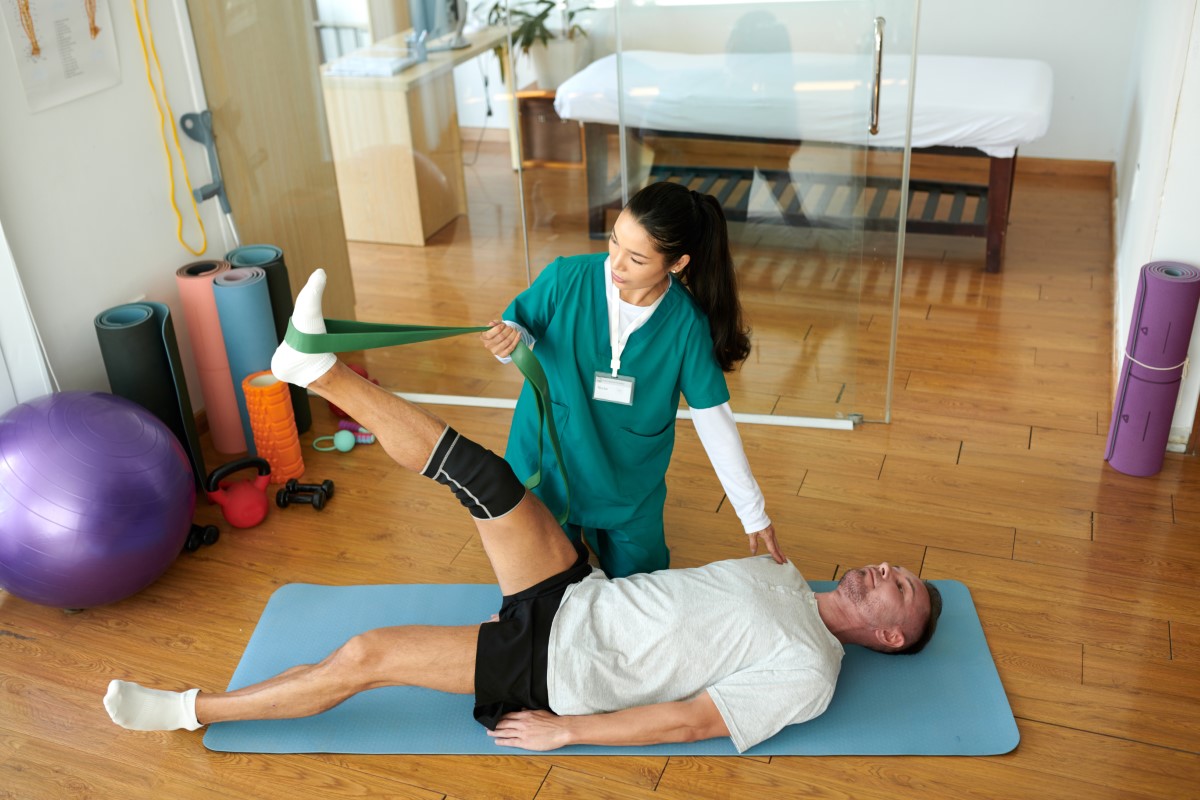Undergoing a hip replacement can feel like a big step, literally and figuratively. And once surgery is over, most patients want to know: “When can I get back to normal life?”
Whether it’s returning to work, walking without support, driving a car, or taking that long-awaited holiday, recovery milestones vary from person to person. This article answers some of the common questions patients often ask after hip replacement, to help set realistic expectations and support a smoother recovery.
When Can I Start Walking Again?
In most cases, walking begins soon after surgery, often within 1 to 2 days. You’ll likely use a walking aid, such as a frame or crutches, to assist with balance and weight-bearing at the start.
As your hip heals and muscles regain strength, walking aids are gradually phased out. Many patients walk independently within 4 to 6 weeks, though this depends on individual progress and any pre-existing mobility issues.
Keep in mind:
- Start with short, slow walks indoors.
- Gradually increase distance with guidance from your physiotherapist.
- Avoid uneven or slippery surfaces in the early weeks.
When Can I Drive Again?
Being able to drive again depends on a few factors, including:
- Which leg was operated on (right hip may delay return to driving).
- How comfortable you are getting in and out of the car.
- Your ability to perform emergency braking safely.
For most people, it’s safe to resume driving around 6 weeks after surgery, once they’re no longer using strong pain medication and can move the hip freely and quickly.
It’s important to get clearance from your surgeon before getting back behind the wheel. Some patients may benefit from practising with a friend or in an empty car park before hitting the road again.
When Can I Go Back to Work?
This depends on the type of job you have:
- Desk-based or remote work: Many people return after 4–6 weeks, especially if they can work from home or modify their duties.
- Physically demanding jobs: Roles involving standing, lifting, or walking for long hours may require 8–12 weeks or more before returning safely.
Discuss your job scope with your orthopaedic team, they can help tailor your recovery timeline based on the physical demands of your work.
When Can I Exercise or Go Back to the Gym?
Light activity and structured physiotherapy are encouraged soon after surgery, but higher-impact exercises should wait. Here’s a general guide:
- Weeks 1–4: Focus on walking, leg exercises, and balance work under supervision.
- Weeks 4–8: You may return to light gym activity, such as stationary cycling, upper-body machines, or gentle stretching.
- After 3 months: Some low-impact sports like swimming, golf, or brisk walking may be appropriate.
Running, high-impact aerobics, or contact sports are typically discouraged, as they may put excess strain on the new joint. Always check in with your care team before resuming more intense activities.
When Can I Travel or Fly?
Short local trips may be possible after 4 to 6 weeks, once you’re walking confidently and comfortable sitting for longer periods.
For air travel, especially long-haul flights:
- Most patients are advised to wait at least 6 weeks post-surgery.
- Longer flights carry a risk of deep vein thrombosis (DVT), so precautions like compression stockings, walking during the flight, and staying hydrated are important.
- Speak to your surgeon before booking any trip, they may recommend waiting longer depending on your recovery and destination.
What If I’m Not Meeting These Timelines?
Everyone heals at their own pace. Factors like age, general health, strength before surgery, and other medical conditions can affect your recovery timeline. Some people may regain mobility quickly, while others need more time and support.
If you’re feeling uncertain or frustrated, talk to your orthopaedic team. Adjustments to your rehabilitation plan or further investigations can help keep your recovery on track.
Have More Questions About Life After Hip Surgery?
At Liberty Orthopaedic Clinic, Dr Lee Eu Jin, Orthopaedic Doctor in Singapore, Consultant Orthopaedic Surgeon, and Joint Replacement and Sports Surgeon, provides ongoing support before and after surgery to help patients regain function safely and confidently.
If you’ve had a hip replacement, or are planning one soon, and want to understand what to expect in recovery, contact Liberty Orthopaedic Clinic to book a consultation. Your return to mobility starts with the right plan and the right support.










